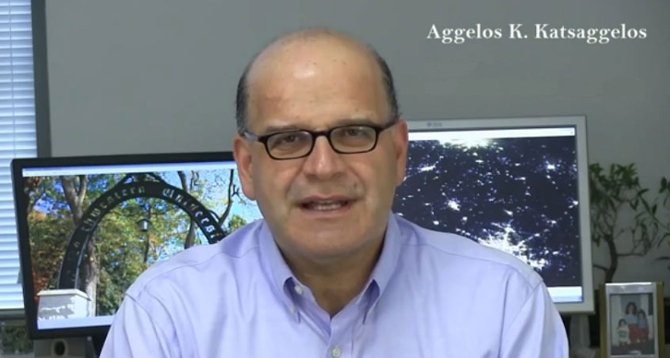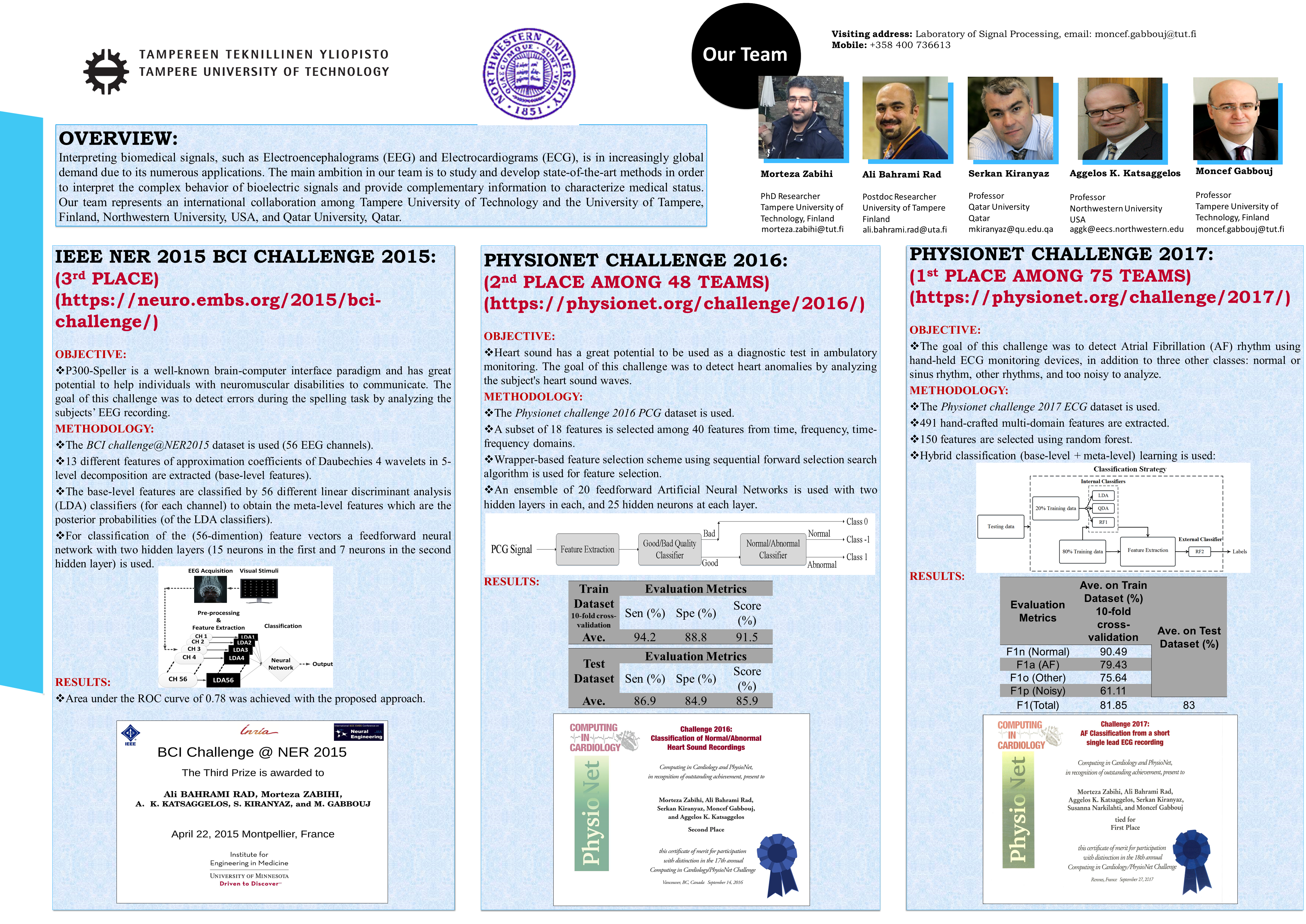Katsaggelos is Part of Championing Team of Computing in Cardiology Challenge 2017
The team was runner-up in the competition last year and also part of third place team in BCI challenge at IEEE EMBS Neural Engineering Conference (NER2015).

Prof. Aggelos Katsaggelos's team has claimed the title in winning 1st place for the Computing in Cardiology Challenge 2017.
The proposed method in the paper entitled “Detection of Atrial Fibrillation in ECG Hand-held Devices using a Random Forest Classifier” tied for the first place in this challenge.
Atrial Fibrillation (AF) is the most common cardiac arrhythmia worldwide, which is known to increase the risk of serious complications such as ischemia, stroke, and early mortality. Therefore, home monitoring of heart functioning is crucial for quick action and may decrease the chance of cardiac misdiagnosis.
In this competition, the contestants are challenged to detect Atrial Fibrillation (AF) using short electrocardiogram (ECG) recordings. 75 international teams including researchers from Philips Research (Cambridge, MA), University of Oxford (Oxford, UK), and EPFL (Lausanne, Switzerland) have competed in the challenge.
The work is the result of an international collaboration among Prof. Katsaggelos, postdoctoral researcher Ali Bahrami Rad (University of Tampere, Finland; also former visiting scholar at Northwestern University), doctoral student Morteza Zabihi (Tampere University of Technology, Finland), Prof. Moncef Gabbouj (Tampere University of Technology, Finland), Prof. Serkan Kiranyaz (Qatar University, Qatar), and Adj. Prof. Susanna Narkilahti (University of Tampere, Finland).
The proposed method in their Computing in Cardiology Challenge 2016 runner-up paper was, titled, “Heart Sound Anomaly and Quality Detection using Ensemble of Neural Networks without Segmentation.”
Phonocardiogram (PCG) signals are originated from turbulent of blood flow across the heart valves. These non-invasive recordings potentially convey information about the malfunctioning of the cardiovascular system and causes PCG to be considered as a cost-effective diagnostic test in ambulatory monitoring.
In this competition, the contestants were challenged to identify heart normal/abnormal state using a single short PCG recording from a single precordial location. 48 international teams including researchers from Philips Research (Cambridge, MA), University of Cambridge (Cambridge, UK), Palo Alto Research Center (Palo Alto, CA), and ETH (Zurich, Switzerland) have competed in the challenge.
The work is the result of an international collaboration among Prof. Katsaggelos, Rad, Zabihi, Prof. Gabbouj, and Prof. Serkan Kiranyaz.
Prof. Katsaggelos was also a member of a team that won third place in the BCI challenge at IEEE EMBS Neural Engineering Conference (NER2015)
The team was recognized for their algorithm entitled ‘A Novel P300-Speller Error Detection Approach in Brain-Computer Interface’.
The BCI contestants were provided with electroencephalogram (EEG) data for spelling a word by only paying attention to visual stimuli. The goal was to detect errors during the spelling task by analyzing the subject's EEG. While the P300-Speller, a well-known brain-computer interface, has great potential to help individuals with neuromuscular disabilities to communicate, it is prone to errors in the presence of physiological artifacts and noise. The team proposes a new approach for P300 speller error detection that improves the reliability of the spelling process.
The work was the result of an international collaboration among Prof. Katsaggelos, Rad, Zabihi, Prof. Gabbouj, and Prof. Kiranyaz.

